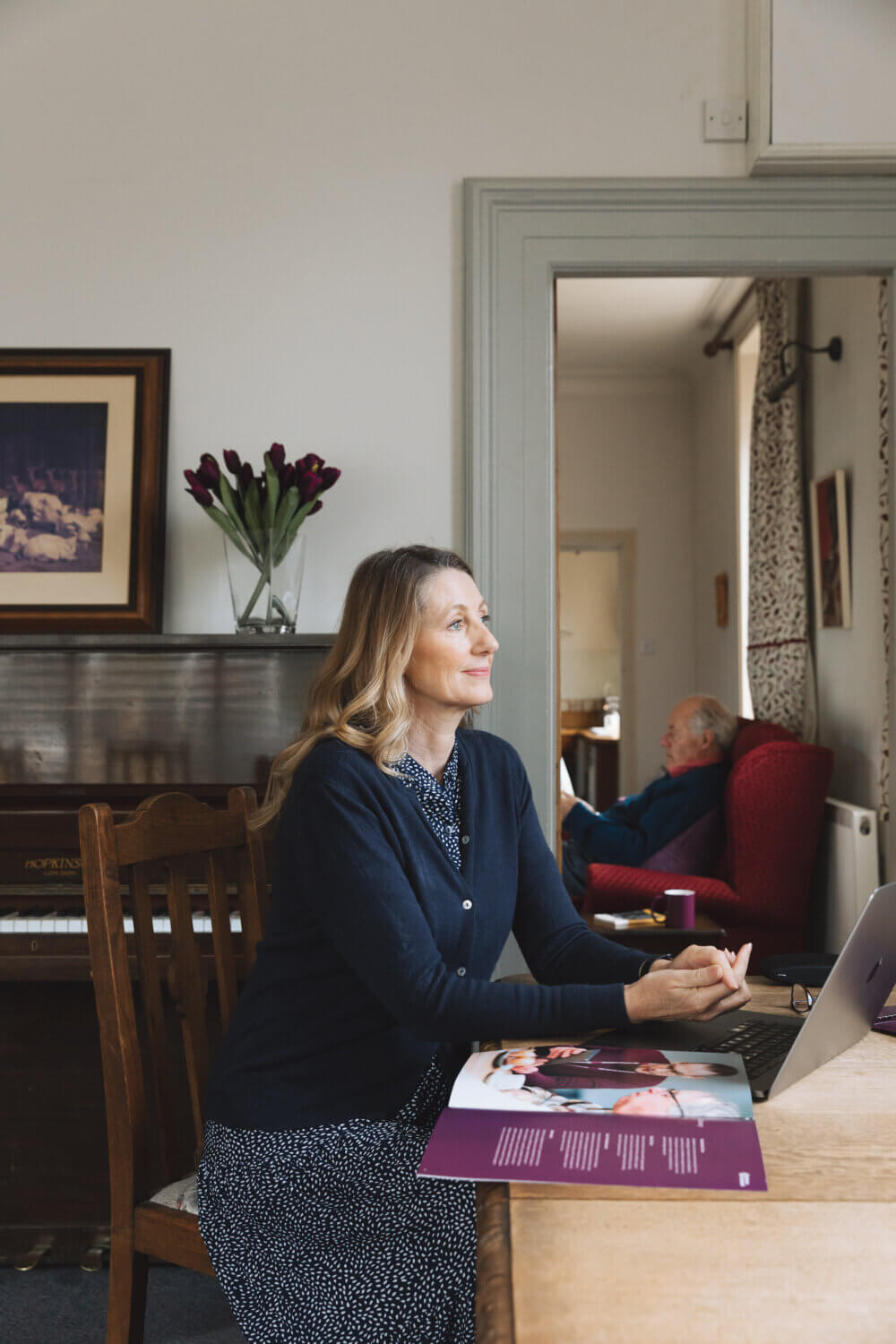How To Get Power Of Attorney For Ageing Parents

When it comes to the care of an ageing parent, there are a lot of decisions to be made such as where they will live, the medical care they need, and how their finances should be managed in order to pay for care. As you begin to research care options for an older loved one, you may come across Power of Attorney and have questions about what this means. Here, we are breaking down everything you need to know, including what it is, why it’s so important, the different types you can get, how to bring this up with your parent, how to arrange it in the best way for both you and your parent, and the legal support that can help. At Home Instead, our aim is to help people age positively and in place by bringing expert care to their home. For nearly 20 years, we have been providing the highest standard of care, and creating industry-leading training programmes for our Care Professionals that are accredited by nursing and medical professionals. Today, we are the world’s largest global home care network, supporting over 100,000 older adults with personalised, tailored care at home. So whatever questions you have about home care, we can help.
What is a Power of Attorney?
A Power of Attorney is a legal document created to grant someone the legal authority to make decisions on behalf of someone else in the event that they can no longer make decisions for themselves. This is often put in place for older people, and essentially it is a way of legally stating that – if the person can no longer make key decisions about their health, finances and welfare (depending on the type of Power of Attorney) due to a health condition – they trust their Power of Attorney to make them instead. According to Citizen’s Advice, depending on the type of Power of Attorney you have, managing someone else’s affairs can mean a number of things, such as:
- Making decisions about their living situation
- Making decisions about their personal care or health care
- Managing their money through their bank accounts, savings, investments and more
- Managing their properties (the Power of Attorney may be able to buy and sell property on their behalf)
- Managing their benefits (the Power of Attorney may be able to claim and spend welfare benefits on their behalf)

Why is this important?
Obtaining a Power of Attorney for an ageing parent is thought of as a positive step as they get older and start to require more care. If a loved one becomes unable to make certain decisions, a Power of Attorney can ensure they continue to receive the best medical care for their condition, and that their money is being managed in the best way for them. A good example of a time when having Power of Attorney is helpful is if a parent struggles with dementia. They may be unable to make decisions, or could begin to unknowingly make decisions that are damaging to their health or finances. In this instance, being able to take the reins and manage these decisions on their behalf is incredibly important in order to protect them.Keep in mind that Power of Attorney is not automatically granted to children, or to those who are married or in a civil partnership. You should still register a Power of Attorney with your spouse so it is always clear who in the family they would want to make decisions for them should they need this.
Who can become a Power of Attorney?
An older parent can choose anyone to be their Power of Attorney, as long as the person is over 18 and capable of rational decision-making themselves. When choosing who will be your Power of Attorney, it is advised that older adults choose someone they trust to act in their best interests, and someone who is aware of the arrangement and agrees to it. Often a younger family member is chosen, so an ageing parent may choose to entrust their Power of Attorney to their children. You can choose more than one person to be your Power of Attorney, which can be convenient if one party is not available to make all decisions, or if there are multiple children in the family. They can either act “jointly”, meaning they must make all decisions together, or “jointly and severally”, meaning they must make some decisions together but others may be made individually. All jointly appointed Power of Attorneys have to agree on the decisions, or they can have their authorisation revoked.

What different types of Power of Attorney are there?
In the UK, there are three primary types of Power of Attorney; Enduring Power of Attorney (EPA), Lasting Power of Attorney (LPA), and General Power of Attorney (GPA), and it is important that you choose the right one for you and your situation. As an overview:
- An Enduring Power of Attorney (EPA) means the appointed person can manage your financial affairs if you are deemed mentally incapable of managing them yourself. This could mean things like paying bills and accessing bank accounts.
- A Lasting Power of Attorney (LPA) is similar to the above, but it also includes decisions about your health and welfare. This could mean making decisions about things like where you should live and the kind of care you need.
- A General Power of Attorney (GPA) is a temporary arrangement which typically lasts no longer than 12 months. This is usually arranged if someone will be abroad or busy for a period of time, and would like someone they trust to handle their affairs while they are gone.
Usually, an older parent would look at either an Enduring Power of Attorney (EPA) or a Lasting Power of Attorney (LPA) when it comes to making decisions about their health and finances as they get older. However, it is important to choose the correct type of Power of Attorney to fit your needs, so think about this carefully and seek legal advice if needed.
How to discuss this with an ageing parent
You may think having a Power of Attorney in place is a good idea for your ageing parent, but bringing it up with them can understandably feel like an awkward topic, especially if your parent is still in good health and doesn’t need help with making decisions yet. Although it should not be a difficult conversation to have, you may feel uncomfortable bringing up their finances, or the possibility that they could one day be unable to make choices for themselves.Giving a child Power of Attorney is a big step for any parent, so it is important to approach the topic with compassion and understanding, and address any hesitation they may have. Try to focus on the benefits of having this in place, and the exact details of what arrangement would make your parent feel most comfortable, as this can help them start to see the upside of the process. Here are some tips for starting a conversation with your parent about Power of Attorney:
- Start talking about the general idea of having a Power of Attorney in advance if you can, so your parent can think about it themselves before having a more direct discussion
- Pick the best time and setting for the conversation, when you will not be rushed and when your parent is feeling positive and calm
- Be sensitive to their feelings and objections by trying to focus on the positive aspects of the arrangement
- Assure your parent that you have their best interests at heart, and will continue to take their preferences and wishes into account with every decision
- Provide examples of situations where having Power of Attorney arranged could be helpful and practical
- Explain the different types of Power of Attorney and the process of obtaining this
- Have clear discussions about the future and what they would like to happen in a range of scenarios
- Always keep them involved in the decision-making process if possible, so they can continue to feel that they have control over their own life choices
- Ask them if they have any concerns or worries, and do what you can to alleviate these
- If your parent is hesitant to start the process, speaking to a solicitor about their reservations can help
What are the steps involved?
If you are looking into getting a Power of Attorney for an older parent in the UK, here are the steps to consider:
- Research the different types of Power of Attorney in relation to the needs of your loved one, and choose the best option for you and them.
- Choose who will be the Power of Attorney. If this is you, make sure you have discussed this fully with your parent. If it is someone else, make sure they know that they are being appointed to this role.
- Complete the relevant forms. Depending on the type of Power of Attorney you need, you may be able to do this online via the Office of the Public Guardian.
- Submit your forms by sending them to the Office of the Public Guardian along with the required fee (it costs £82 to register a Lasting Power of Attorney unless you get a reduction or exemption).
- Wait for your registration to become official once the office has processed the application. This can take several weeks, as the office will notify the appropriate relatives to give them the opportunity to express any concerns regarding the application. Upon registration, the Power of Attorney will become legally effective and you can use it if needed.
Although you do not need to involve a solicitor, it is advisable to consult with a legal professional while going through this process to ensure everything is done correctly, that your parent’s needs and wishes have been properly documented, and that all concerns have been addressed. If you need to contact the Office of the Public Guardian for an application pack by post, you can write to them at:
Office of the Public Guardian
PO Box 16185
Birmingham
B2 2WH
Phone: 0300 456 0300
Textphone: 0115 934 2778
Email: [email protected]
When is it a good idea to seek Power of Attorney for a parent?
The ideal scenario when it comes to a Power of Attorney is to arrange it while your parent is still in good health and can make decisions for themselves. It may not be useful until such times as they can no longer confidently decide things about their healthcare and finances, but having it in place before that time comes can make things a lot easier down the road. The next best time to organise a Power of Attorney is if a parent has had a significant health diagnosis, such as Alzheimer’s or cancer, or if they have a surgical procedure coming up in the future. Don’t delay putting a Power of Attorney in place due to feeling uncomfortable talking about it with your parent. Remember, it is done to protect their best interests, so having this taken care of early is a positive move that allows you to protect their health, finances and wishes.

Obtaining a Power of Attorney for a parent with dementia or a similar condition
In the unfortunate event that a parent’s mental capacity has significantly declined due to dementia, it can be more difficult to obtain a Power of Attorney after the fact, because the Mental Capacity Act assumes that every adult has the capacity to make their own decisions unless it is proven otherwise. Depending on how advanced your parent’s condition is, they may no longer have the understanding to clearly decide who they would like to trust with this.
If you can, get a Power of Attorney as soon as they have been diagnosed. In the case of dementia conditions, these can progress slowly or rapidly, so the sooner you can organise this the better. Of course, this may be the last thing on your mind after your parent has received such an upsetting diagnosis, but it is in their best interest to make sure their health and finances are protected no matter what happens. If you have not been able to arrange a Power of Attorney early and your parent’s mental capacity has declined to a point where they can no longer knowingly and willingly agree to your appointment as their Power of Attorney, then you will likely need to make a court appeal so they can determine whether or not this decision can still be made, or to use other processes such as deputyship. This can take time and cost money, so it is always best to arrange a Power of Attorney early to avoid further stress on top of your parent’s diagnosis.
Where to go if you need support obtaining a Power of Attorney
You can find a lot of information on getting a Power of Attorney on the government website, but if you are looking for more support in the process it may be beneficial to enlist the services of a solicitor to ensure everything is done correctly to protect you and your parent.
You can look for a qualified solicitor using the Law Society online directory.
Remember, you do not need to use a solicitor for this, but it can be helpful and reassuring, especially if you are struggling to understand the process.
If you need assistance in deciding whether or not you need to get a Power of Attorney, you can contact the Office of the Public Guardian using the details mentioned above.
The process of obtaining a Power of Attorney for an ageing parent, whether or not they have a serious health condition, can be stressful and overwhelming due to the emotional nature of the decision. Remember to view the process as a positive step in protecting your parent’s assets and looking after them long-term. Always involve them in decisions and plans if they are able so they feel in control of their future.

Home Instead is an award-winning home care provider and part of a worldwide organisation devoted to providing the highest-quality relationship-led care for older people in their own homes. Arranging care for yourself or your loved one shouldn’t be stressful, so whatever questions you would like answered, feel free to reach out to the Home Instead team to discuss your needs.

Michelle Tennant, Clinical Governance Lead